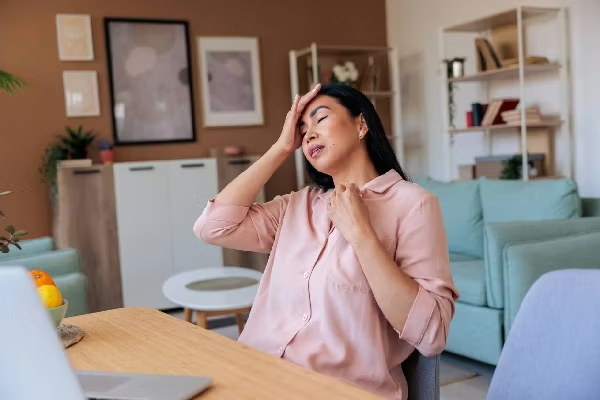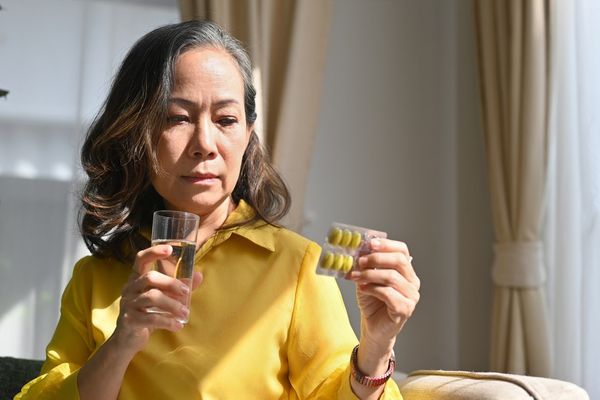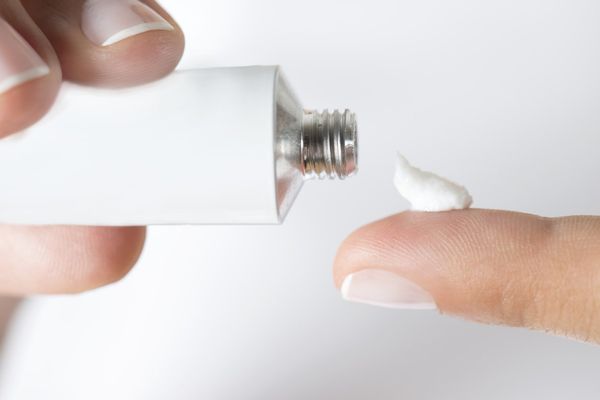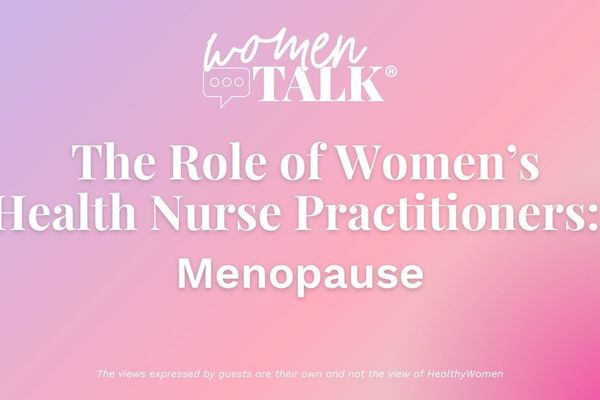If you're in midlife, chances are you've heard a lot about testosterone therapy for women. If you believe everything you read, supplementing with this hormone can improve your sex life, give you more energy, clear up your skin and help you run a four-minute mile. The reality, however, is far different. For example, testosterone therapy could cause acne, facial hair and a deeper voice.
While there is evidence that testosterone therapy can help some women with certain health-related issues, primarily sexual disorders, it most assuredly is not a wonder drug, and it is not recommended for most women.
First, a few words about testosterone. Testosterone is an androgen, or sex-related hormone. Although considered "male" hormones, androgens play important roles in a woman's reproductive cycle and overall health. Produced in your ovaries, adrenal glands and fat cells, androgens like testosterone have more than 200 actions in women.
Learn more about the signs of high testosterone in women.
One of those actions is to contribute to your sexual arousal. This is the physical part of sex—the "tingling" feeling that lets you know your body, at least, is ready for action. Desire, however, if the part of you that determines interest and makes you want to sneak up behind your partner and begin kissing the back of his or her neck. Because testosterone levels can fluctuate significantly and because women have relatively low levels of testosterone, testosterone tests will not necessarily indicate whether a woman's lack of desire or arousal is related to naturally occurring testosterone. However, studies do find that supplemental testosterone, delivered in the form of a patch, improves sexual desire and responsiveness and increases the frequency of sexual activity.
Unlike estrogen, androgen levels don't suddenly drop when you reach natural menopause. Instead, androgen production begins slowly falling in your twenties. By the time you reach menopause, you're producing about half as much as you made at puberty. However, your ovaries may still continue to produce small amounts of androgens even after menopause. Some studies show menopausal ovaries continue to produce testosterone; other studies show they do not. One thing is for sure: if your ovaries are removed or damaged, you will go into surgical or early menopause. Some women who experience surgical menopause report a drop in sexual desire and drive.
We're still not quite sure whether the reduced androgen levels that occur with aging are responsible for the loss of sexual drive some women experience as they age. What is clear, however, is that supplemental testosterone therapy improves some women's ability to become aroused and the intensity of their orgasms after menopause, particularly women thrust into sudden menopause.
If your health care professional thinks you might benefit from androgen therapy—also called testosterone therapy—you will likely be started on a very small dose and monitored carefully.
Keep in mind, however, that there is no FDA-approved form of testosterone for treating sexual disorders in women. Nonetheless, your health care professional can prescribe a testosterone product approved for other indications. Examples include compounded testosterone creams and testosterone patches, gels, creams or pills approved for use in men. They should only be given to women if doses are reduced considerably, and blood testosterone levels are closely monitored, which can be difficult to do.
There are few, if any, side effects from the small amounts of supplemental testosterone used to treat sexual desire disorders in women, although your health care professional should monitor you closely. You should also know that there is very little evidence about the effects of testosterone on women not taking supplemental estrogen, which is why your health care professional shouldn't prescribe androgen therapy without estrogen.
Bottom line: If your lack of sexual drive is affecting your relationship and/or your quality of life, talk to your health care professional about your options.
- What's the Deal With HRT? - HealthyWomen ›
- Menopause - HealthyWomen ›
- Is Hormone Therapy Right for You? - HealthyWomen ›







